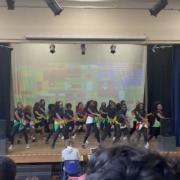
1.Have enough practice = confidence
When I did my GCSEs, I had a lot of practice – quite painful, but I felt a lot more confident after! For instance, I did 7 workbooks for Maths, after that I found I’m not nervous for Maths GCSE anymore – and I did enjoy it in the end.
The key thing is to split your practice period in 2 stages: normal practice workbooks and if you still have time, more challenging ones that is designed for grade 7-9.
2. Re-do the questions you did wrong
A key thing for me to is re do the wrong Qs, which re-enforces my understanding. It did work! Some questions from my workbook came up in my science papers, two of them were 6 markers. :)
3. Try to teach someone else.
Again, this gives you confidence. It’s a win-win. This also consolidates your understanding enormously.
4. Time management
The key thing with revising is not how long but how much. I wish I know that when I was revising. Efficient time management also helps in the future. It is a very valuable life skill.
5. Write the key points from memory.
Reciting knowledge is a very useful strategy of mine. This consolidates your knowledge, makes you more confident and improves your memory.
6. Read the Spec
You need to know what is on the specification. Sometimes, textbooks do not cover certain parts on the spec, but you might get tested on them!
7. Do exam papers
The best thing about exam papers is that it improves your time managing skills and you will know what to expect on the exam day.
8. Allow yourself some rest between revision.
Revising too hard sometimes is incredibly stressful and straining – and inefficient! Give yourself a 15 minutes break is very beneficial. Also, there are learning with me videos on YouTube.
9. It’s not as hard as you imagine.
I was quite nervous during my exams because after all, it is the first big thing you get a qualification for. But too much stress may leave your mind blank. The best thing is to relax yourself and go enjoy it!
10.Use a wide range or resources
Sometimes, using a wide range of online and book resources are very useful, as this gives you different perspectives and some may cover some parts you have not learnt! Also (most importantly) it is less likely that you will get bored.
Good luck everyone!
Nikki Wang



























